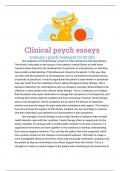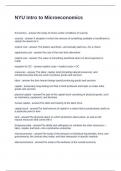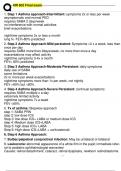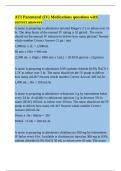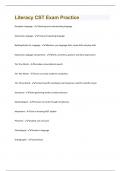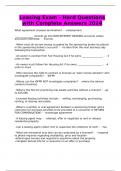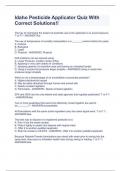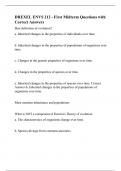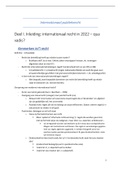Examen
clinical psychology 18 essays on extended response questions
- Cours
- Établissement
18 essays on 8 and 20 markers focusing on most topics in clinical psychology, such as reliability and validity of diagnosis, schizophrenia and depression explanations and treatments, key studies and key question, use of interviews.
[Montrer plus]
